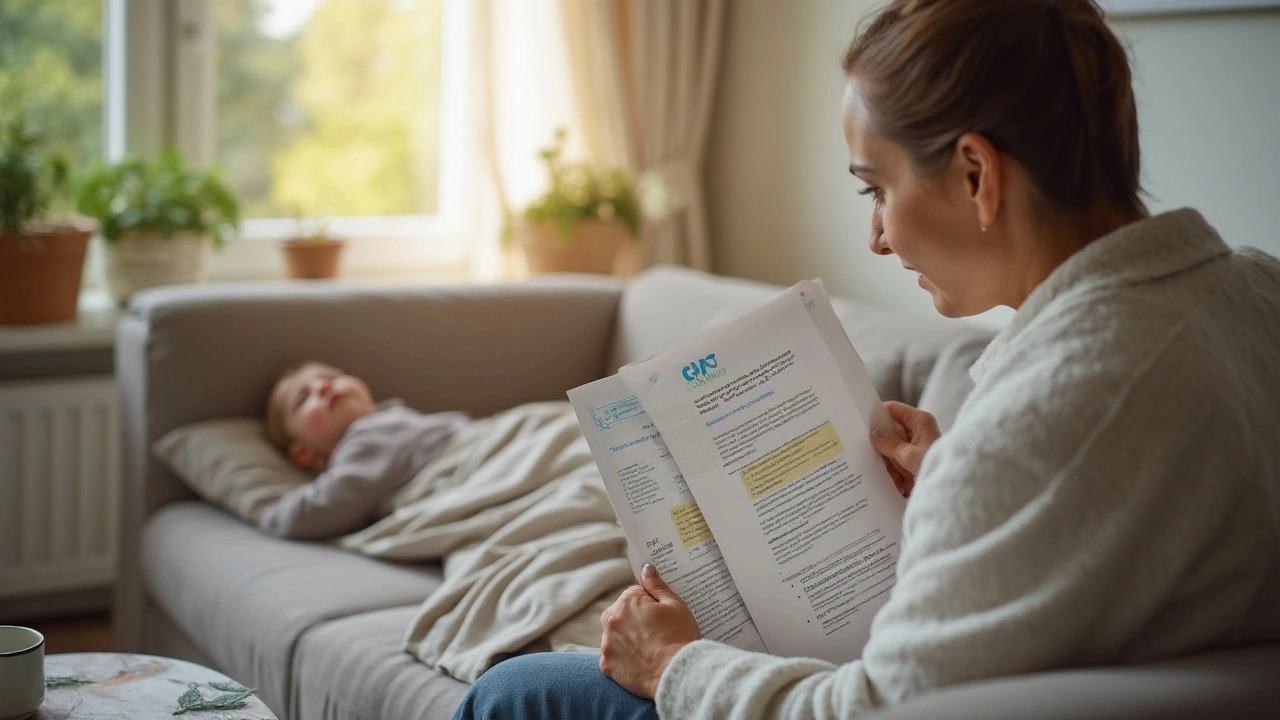Varicella (chickenpox): what to watch for and what to do
Varicella, commonly called chickenpox, is a highly contagious viral infection that causes an itchy rash and fever. Most kids recover at home, but it can be worse in adults, pregnant people, and anyone with a weak immune system. You can catch it from someone with the rash before their spots crust over — so timing matters.
The classic signs are a fever, tiredness, and a blister-like rash that comes in waves. New spots can show up for several days, so you might see red bumps, then blisters, and finally crusts at the same time. The itch can be intense; that’s often the part people remember most.
When to worry and what to do
If you or a family member has chickenpox, isolate until all blisters have crusted — usually about 5–7 days after the rash starts. For relief at home, use cool baths (oatmeal baths help), calamine lotion, and oral antihistamines to cut itching. Keep nails short and clean to lower the risk of skin infection from scratching.
Use acetaminophen (paracetamol) or ibuprofen for fever and pain. Don’t give aspirin to children or teens with viral illnesses — it raises the risk of Reye syndrome. If blisters look infected (increasing redness, warmth, pus), or if someone has a very high fever, trouble breathing, severe headache, stiff neck, or is unusually drowsy, get medical help fast.
Antiviral drugs like acyclovir can shorten the illness and reduce complications when started early — ideally within 24–48 hours of the rash appearing. Doctors often recommend antivirals for adults, pregnant people, newborns exposed to the virus, and anyone with weakened immunity. For high-risk exposures, varicella zoster immune globulin (VZIG) or antiviral prophylaxis may be offered; timing after exposure is important, so call your provider quickly.
Prevention and vaccine
The varicella vaccine is the best way to avoid chickenpox. Routine childhood vaccination is two doses: the first at 12–15 months and the second at 4–6 years. If you missed shots as a kid, adults and teens can get two doses 4–8 weeks apart. The vaccine greatly lowers the chances of severe disease and helps stop outbreaks.
If you’re unsure whether you’re immune, a simple blood test (varicella IgG) tells you. Pregnant people who aren’t immune should avoid exposure and talk to their doctor — chickenpox during pregnancy can cause serious complications for both mother and baby. And remember: after recovering from varicella, the virus stays dormant in nerve cells and can reactivate later as shingles. Vaccination reduces that risk too.
Bottom line: if you suspect chickenpox, isolate, manage symptoms, and call your health provider to discuss testing, antivirals, or VZIG if you’re at risk. The vaccine is the simplest, most reliable way to protect yourself and others.

Famciclovir for Chickenpox: How Effective Is This Treatment Option?
Famciclovir is an antiviral drug sometimes discussed as a treatment for chickenpox, but is it truly effective in managing symptoms or speeding up recovery? This detailed article digs into what current studies say, compares famciclovir to other common treatments, and unpacks who might benefit most. Expect reliable facts, tips for safer recovery, and practical info to help you or a loved one make the smartest choices when facing chickenpox.
More Detail